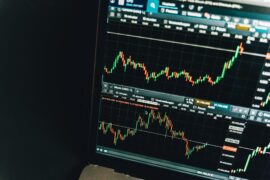This article may contain references to products or services from one or more of our advertisers or partners. We may receive compensation when you click on links to those products or services. Nonetheless, our opinions are our own.

Updated by Albert Fang
The curation of a dataset is as much art as it is science because it requires critical thinking as much as following rules. As a result, creators of datasets should typically possess relevant domain knowledge and other skills required to guarantee data integrity.
However, that doesn’t negate the responsibility of dataset buyers to ensure data reliability. Therefore, this article focuses on the features of reliable datasets, the challenges to their collection, and the industries where datasets are of great importance.
What are the Features of a Reliable Dataset
Data analysis has become a critical part of many businesses and industries. It helps organizations identify areas of improvement and utilize resources as efficiently as possible.
However, without reliable datasets, insightful analysis is a pipedream. With that in mind, here are features to look out for before opting to buy datasets from any provider:
- Completeness. A reliable dataset should contain the complete information needed for analysis. It should not have missing values or fields. Also, all necessary data to ensure a comprehensive understanding of the research topic must be present.
- Relevance. The data set must contain only values and fields pertinent to the research question. Extraneous, unrelated info implies a lack of alignment between the research purpose and the dataset. Similarly, to be relevant, it must adequately represent the population or system it hopes to provide insight to. In other words, it must possess an unbiased representation of subjects while aligning with the topic of interest.
- Accuracy. All data points for every field should be free from errors or inaccuracies. That is, when compared against trusted data sources and similar datasets, values should all check out.
- Consistency. A reliable dataset should have uniform formatting. In addition, there must be concordance in the units of measurement employed for values within a field.
- Ethical soundness. The collection and collation of a reliable dataset should comply with regulatory and ethical considerations. Basically, before deciding to buy datasets, the uninterested party must do due diligence, confirming that the collection process sought consent. Also, the dataset must come with extensive documentation detailing the collection procedures, data sources, and transformations made.
Difficulties Faced in Putting Together a Dataset
Despite the necessity of datasets for analysis, machine learning, etc., they are not very easy to put together. The processing of preparing the final dataset sometimes comes with its challenges. Here are some of them:
- Privacy and ethical concerns. When it comes to dealing with data, data ethics has become one of the more important discussions of the last decade. Questions asked of companies selling or purchasing user and consumer data are not going anywhere. Subsequently, regulations and standards need to be followed for a dataset to be legal. This is not easy, especially when the data in question is sensitive.
- Collection issues. It is not always that all of the required data for a dataset is obtainable from a single source. Most times, data collectors need to identify many different sources, thus complicating the process. Additional challenges could also come in the form of obtaining the relevant permissions for compliance.
- Differing formats and lack of standardization. Sequel to the collection challenge is that of differing formats. Data collected from different sources rarely ever come in the same formats. As such, the data would need cleaning. Cleaning would entail reconciling inconsistencies where they exist, standardizing formats and units of measurement, fixing structure, etc. The problem of differing formats becomes even more complicated when the datasets are larger, with many fields.
- Complexity of the domain. As stated earlier, domain knowledge is essential to the success of a machine learning or analytics program. As such, to put together a reliable dataset, the collecting unit needs to understand the domain. In many cases, this requires partnerships with experts to navigate nuances and data relationships specific to the domain.
- Biases. Data biases can come about due to inadequate representation of the study population, missing entries, or errors in the collection. It is up to the collators of data to identify any potential biases and address the issues.
5 Industries That Rely Greatly on Datasets
The data-centric nature of the modern business world means that nearly (if not) all industries employ datasets to an extent. Below are some whose use of datasets is a necessity for success:
- Pharmaceuticals. Molecular modeling is at the forefront of drug design and discovery. However, without comprehensive datasets, even semi-accurate modeling would be very difficult to achieve.
- Human resource management. Insights generated from datasets can help senior management to plan tasks better and assess employee performance.
- Academia. The goal of academics is to continue facilitating the evolution of understanding. As such, datasets and research are a critical part of many academic disciplines.
- Supply chain and logistics. So many data-related factors play a role in logistics and supply chain management. Some of them include weather forecasting, predictive maintenance, route optimization, predictive efficiency, etc.
- Retail and e-commerce. The competition in the retail industry means many parties within turn to data to gain a competitive advantage. Consequently, reliable datasets take on more importance as a result.
Conclusion
Individuals and businesses that buy datasets trust in the service provided by vendors. However, trust needs to take a backseat when the integrity of decision-making is at risk.
The curation of datasets is as much art as it is science, and that should be a reason for cautiousness. As such, next time you are looking to buy datasets, be sure to employ the knowledge shared here to minimize your risk.

Reviewed and edited by Albert Fang.
See a typo or want to suggest an edit/revision to the content? Use the contact us form to provide feedback.
At FangWallet, we value editorial integrity and open collaboration in curating quality content for readers to enjoy. Much appreciated for the assist.
Did you like our article and find it insightful? We encourage sharing the article link with family and friends to benefit as well - better yet, sharing on social media. Thank you for the support! 🍉
Article Title: The Art and Science of Curating Impactful Datasets
https://fangwallet.com/2023/12/06/the-art-and-science-of-curating-impactful-datasets/The FangWallet Promise
FangWallet is an editorially independent resource - founded on breaking down challenging financial concepts for anyone to understand since 2014. While we adhere to editorial integrity, note that this post may contain references to products from our partners.
The FangWallet promise is always to have your best interest in mind and be transparent and honest about the financial picture.
Become an Insider

Subscribe to get a free daily budget planner printable to help get your money on track!
Make passive money the right way. No spam.
Editorial Disclaimer: The editorial content on this page is not provided by any of the companies mentioned. The opinions expressed here are the author's alone.
The content of this website is for informational purposes only and does not represent investment advice, or an offer or solicitation to buy or sell any security, investment, or product. Investors are encouraged to do their own due diligence, and, if necessary, consult professional advising before making any investment decisions. Investing involves a high degree of risk, and financial losses may occur including the potential loss of principal.
Source Citation References:
+ Inspo











































